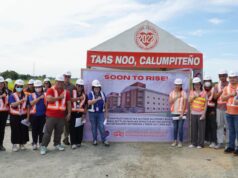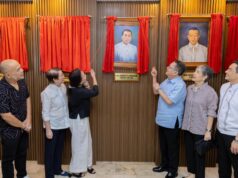Investors from the three zones gathered here for a “joint declaration” that offered “suggestions to ensure the success” of the TRAIN law.
They said they are poised to lobby in the next days in Congress and the Department of Finance (DOF) to push their proposals for Package 2 of the TRAIN law.
Some of them cited cases of big-time investors already considering moving to Laos or Cambodia instead of expanding operations in the Philippines, but they did not provide details.
Already, the investors admitted being adversey affected by Package 1 of the TRAIN law which imposed 12 percent value added tax (VAT) on suppliers of firms within economic zones and freeports in the country.
“We really want the Bureau of Internal Revenue (BIR) to issue a clarification on this, because so many local suppliers are being affected,” said Frankie Villanueva, president of the Clark Investors and Locators Association (CILA).
Package 1 of the TRAIN law which took effect this year scrapped the zero-rated VAT for local companies that sup- ply firms under the Philippine Economic Zone Authority (PEZA).
An official of PEZA, however, insisted that tax incentive for the suppliers could not be scrapped because of a previous Supreme Court decision that essentially said economic zones should be treated as foreign soil.
“It is unfortunate that amid this conflict, suppliers are now computing the cost of their supplies already with a 12 percent VAT. Any assurance that this could be reimbursed in case there is final verdict on the issue is not reassuring, as this will bear on the competitiveness of Philippine ecozone investors in the international market,” said CILA chairman Irineo Alvaro.
In a forum here last week, officials from the DOF briefed investors of its proposed TRAIN law Package 2, including the scrapping of the incentive of only fi ve percent of gross income earned (GIE) instead of the usual taxes for investors in freeports and economic zones.
Villanueva noted that during its recent forum here, the DOF claimed that the Philippines has remained competitive in the international market. “Research reveals this is not true,” Alvaro noted, as he cited World Bank data indicating that among ASEAN countries, the Philippines was ranked sixth in foreign direct investments (FDI) performance for the period 2011 to 2016.
The Philippines has a mere four percent share in the FDI figures as against topnotcher Singapore’s 52 percent and second placer Indonesia’s 13 percent.
He also cited statistics again ranking the Philippines only sixth among ASEAN countries in terms of wage rates, power rates, infrastruc- ture rank, and institutional rank.
The Philippines has also been ranked sixth in terms of “tax regimes and overall competitiveness,” the statistics also said.
The investors from Clark, Subic and Bataan have agreed to push for only 20 percent, and not the proposed 25 percent corporate income tax by 2022 “to make us more competitive with our neighbors who are already at the 17 to 25 percent corporate income tax levels.”
“We believe that this adjustment will not hurt our government’s target revenue so long as we improve tax collection efficiency,” the investors said in their draft proposal which they are set to approve by next week for presentation to the DOF.
They also want the government to continue with its contractual commitments with “performing” investors in economic zones, including the GIE tax incentive “to address the ‘instability of police’ label that has become a stigma for the country.”




